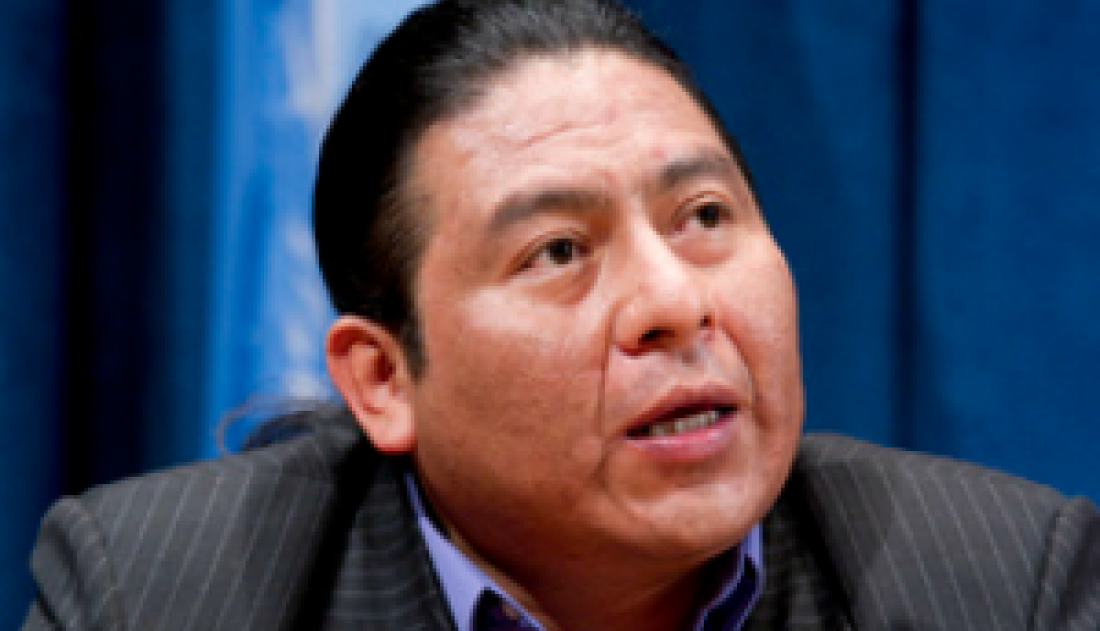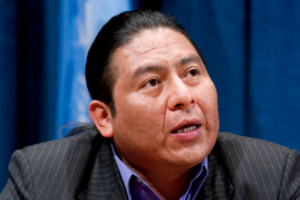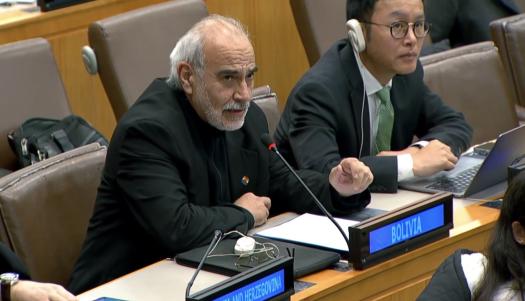
 Statement from Mr. Alvaro Pop Ac, Chair of the Permanent Forum on Indigenous Issues, and Ms. Dalee Dorough and Chief Edward John, Members of the Permanent Forum on Indigenous Issues on the Protests on the Dakota Access Pipeline (North Dakota, USA).
Statement from Mr. Alvaro Pop Ac, Chair of the Permanent Forum on Indigenous Issues, and Ms. Dalee Dorough and Chief Edward John, Members of the Permanent Forum on Indigenous Issues on the Protests on the Dakota Access Pipeline (North Dakota, USA).
On August 25, 2016, the Standing Rock Sioux and hundreds of people gathered in Washington D.C. in opposition to the construction of the Dakota Access Pipeline. The Judge delayed his ruling, until September 9, on the lawsuit submitted by the Sioux against the Army Corps of Engineers for lack of consultation.
The Dakota Access Pipeline is a $3.8 billion project that will cross the Missouri River near the Standing Rock Sioux territory located between the border of North and South Dakota. The project was proposed and planned without any consultation with the Standing Rock Sioux or others that will be affected by this major project. The lack of consultation with the Indigenous peoples concerned triggered the filing of the lawsuit against the Army Corps of Engineers, who approved its construction. The pipeline would adversely affect not only the security and access to drinking water of the Sioux and millions of people living downstream of the Missouri River, but it would also destroy archaeological, historical and sacred sites of the Sioux.
Given these circumstances, we call on the government of the United States to comply with the provisions recognized in the United Nations Declaration on the Rights of Indigenous Peoples and ensure the right of the Sioux to participate in decision-making, considering that the construction of this pipeline will affect their rights, lives and territory. As affirmed in Article 19 of the UN Declaration, “States shall consult and cooperate in good faith with the Indigenous Peoples concerned in order to obtain their free, prior and informed consent before adopting and implementing legislative or administrative measures that may affect them.”
Thousands of Indigenous Peoples from different nations have gathered in the Sacred Stone Spirit camp, in North Dakota, to block construction of the pipeline. Actions such as these tend to occur in different parts of the world and are often misunderstood and described as rebellious, backward thinking and unilateral opposition to development. Therefore, we call on the United States government to establish and implement, in conjunction with Indigenous Peoples concerned, a fair, independent, impartial, open and transparent process to resolve this serious issue and to avoid escalation into violence and further human rights abuses.
For Indigenous Peoples, the environment is a living entity that contains our life sources as well as our sacred sites and heritage. The environment is an important part of our lives and any threats to it impacts our families, ancestors and future generations. It is therefore imperative that the United States respects and recognizes the intrinsic, inter-related rights of Sioux and their spiritual traditions, history, philosophy, and especially their rights to their lands and territories.
The world is watching what is happening in North Dakota.
 Welcome to the United Nations
Welcome to the United Nations


